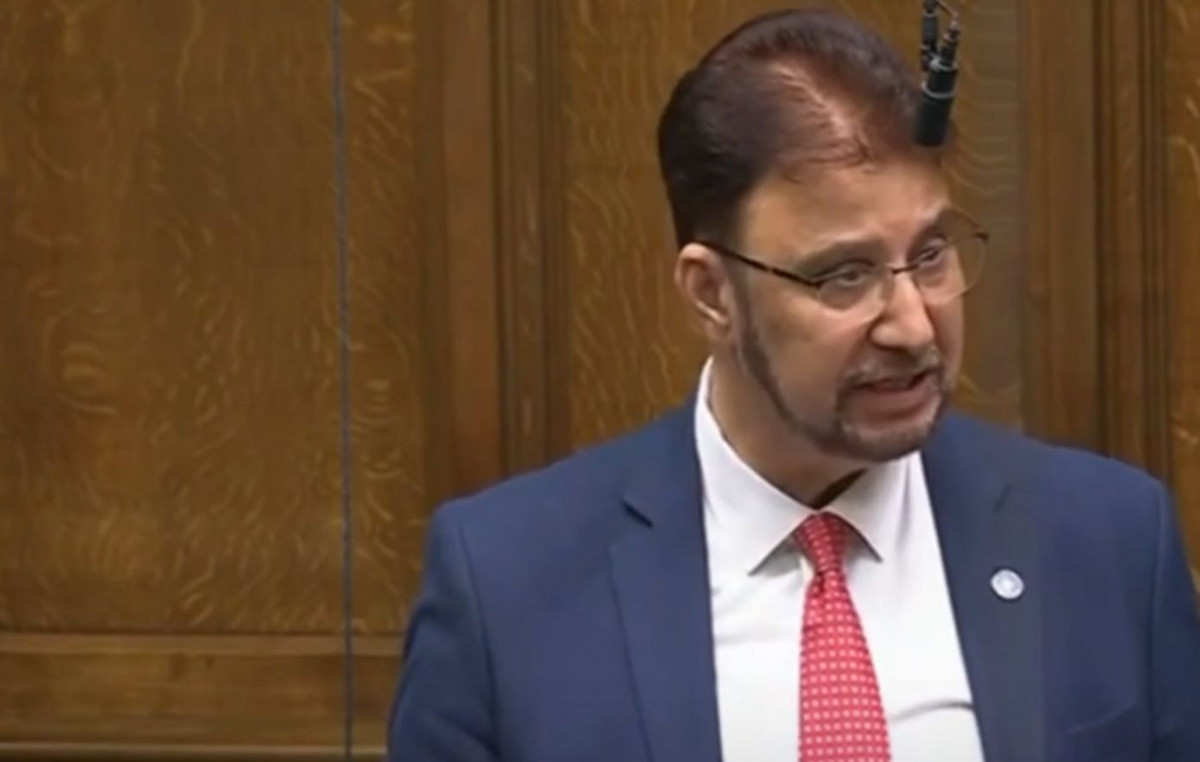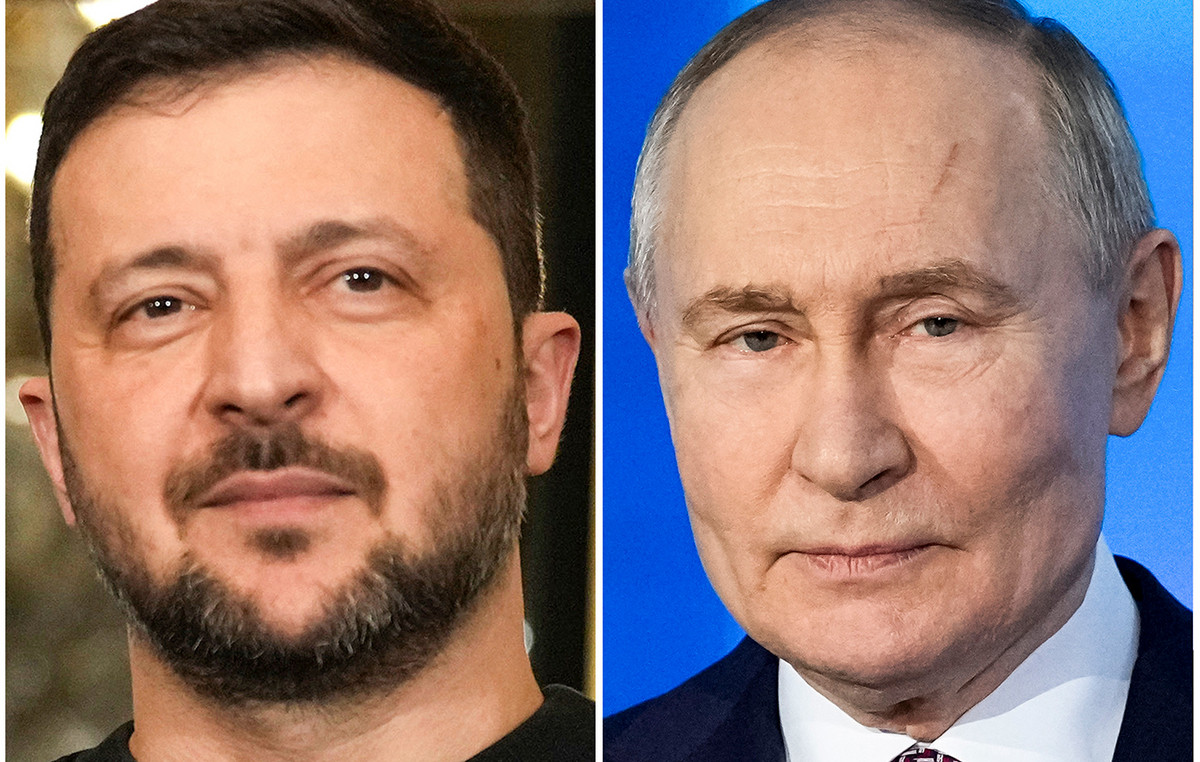In the years leading up to the Russia’s attack on Ukrainelobbyists of U.S they raised millions of dollars from Russian banks and financial companies that paid to advance their interests in Washington.
Now, after the Russian invasion and the new sanctions announced by the president Joe Bidenmany of these lobbying firms are rushing to sever ties and abandon their lucrative contracts.
At least six lobbying firms that previously represented Russian banks and companies, now sanctioned, that are linked to a Russian gas pipeline terminated their contracts or representation this week, according to federal lobbying statements and disclosures.
The exodus marks the rupture of a channel between Moscow and Washington DC’s K Street, which has long employed former federal officials and members of Congress from both parties, experts said.
“For anyone representing a Russian entity in Washington DC, it is a difficult climb. […] that got a lot steeper,” said Benjamin Freeman, a researcher at the Quincy Institute for Responsible Statecraft, a foreign policy think tank, who has written a book on foreign influence. “It’s going to be hard to find a sympathetic ear for any of these Russian customers right now.”
Some of the banks hit by Biden’s sanctions, including VTB, Russia’s second-largest, have been subjected to “full lockdowns,” which freeze organizations’ assets in the U.S and prohibit them from doing business in the country. That means it would be illegal for lobbyists to work for them unless they received a license from the Treasury Department, according to legal experts.
The withdrawal of contracts with fully blocked banks “is not a gesture of solidarity with Ukraine, it is a requirement of US law,” said Erich Ferrari, a lawyer specializing in US economic sanctions. Lobbyists can be prosecuted for conflicting with sanctions laws, he said.
But even for lobbyists representing companies that aren’t fully blocked, it would be a “real reputational risk if they continue to represent these sanctioned entities,” said Freeman, who called ties to Russia “a punitive brand.”
Biden’s move to impose sanctions on Russia is intended to make the government of Vladimir Putin pay a financial price for the attack on the neighboring country – the most significant military invasion in Europe since World War II. The sanctions “will impose severe costs on the Russian economy” and “will exceed anything that has already been done,” Biden said in a speech on Thursday.
Russian stocks plummeted after the invasion and sanctions — but Putin’s government has been bracing for stronger penalties for years, so it’s unclear how much economic damage the measures will do in the long run.
Russian banks did not respond to requests from the CNN to comment on his lobbyists’ abandonment, but several issued statements saying they were prepared for sanctions or calling Biden’s actions politically motivated.
“We are working on various plans to combat sanctions in order to minimize the negative consequences for our customers,” a VTB spokesperson wrote in an email.
VTB had one of the oldest lobbying presences in DC among Russian banks. He has paid law and lobbying firm Sidley Austin more than $2 million since 2015, according to disclosures filed under the Foreign Agent Registration Act.
Among the company’s lobbyists were Rick Boucher, a former Democratic congressman from the state of Virginia, and George Madison, a former general counsel for the US Treasury Department. A spokesperson for Sidley said Friday that VTB is “no longer a customer” of the company “in compliance with US sanctions”.
The spokesperson declined to say when the decision was made to end the representation, but Sidley was still receiving $30,000 a month from VTB as of September 2021, according to his most recent disclosure.
The bank hired Sidley and other lobbyists after federal authorities imposed more stringent sanctions on the bank following the acquisition of Crimea by Putin.
In 2016, lobbyists for the VTB organized a meeting between the bank’s president and State Department official Daniel Fried, who worked on Russian sanctions, and also invited him to a gala sponsored by the VTB – part of a wider lobbying campaign. , as the Center for Public Integrity first reported in 2018.
Fried, who is now a member of the Atlantic Council, told CNN that the lobby had no impact on him or his State Department colleagues.
“I said I’m going to talk to him, but I’m not going to his fancy banquets,” Fried said of the bank’s president. “I told him: ‘You are part of Putin’s system, you benefit from this system, this system is responsible for the attack on Ukraine, and you know perfectly well why we are beating you.’
After he left the State Department, Fried said, he was personally approached by lobbyists offering “a bucket of money” to work for oligarchs trying to avoid sanctions, but he declined the offers. “What am I going to do, buy another Prius?” he asked.
Boucher was not the only member of Congress to defend a Russian bank. David Vitter, a former Republican senator from the state of Louisiana, and Toby Moffett, a former Democratic congressman from the state of Connecticut, have lobbied in recent months for Sovcombank, another bank sanctioned by Biden this week.
His firm, Mercury Public Affairs, signed a $90,000-a-month contract with Sovcombank in January, and Vitter lobbied against the bank’s inclusion in the sanctions legislation being debated on Capitol Hill, federal documents show.
Sovcombank “would be an extremely counterproductive sanctions target” due to its “deep ties to American and Western institutions,” Vitter wrote in a message released by Mercury in a Justice Department document.
He said Sovcombank manages pension, employment insurance or savings funds for more than 40 large US companies, and argued that the sanctioned bank “would have major negative consequences on the market.”
The company also said it had released a 28-slide PowerPoint presentation that highlighted Sovcombank’s investments in environmental sustainability and its commitment to diversity.
A spokesperson for Mercury said the company terminated its contract with the bank on Thursday, when it was included in Biden’s sanctions.
Among the other companies sanctioned by Biden, a US subsidiary of Sberbank, Russia’s largest bank, has paid more than $800,000 to Venable LLP for lobbying since 2017, according to Senate records.
A former congressional official and Treasury Department attorney registered as a lobbyist for the subsidiary, and his job included monitoring legislation and administrative actions related to sanctions, according to company documents.
A spokesperson for Venable said the company terminated its contract with the Sberbank subsidiary on Friday.
And VEB bank, which was sanctioned by the Biden administration earlier this week, paid $62,500 a month to Geopols, a DC communications company, from 2019 to 2020.
Geopols “provided public affairs policy advice and consultation and media interactions” and met with “U.S. government officials and their staff and members of the media to discuss potential new sanctions laws,” according to the documents.
Grace Fenstermaker, the company’s director, told CNN that Geopols had not worked for VEB since May 2020, but the company was still registered with the federal government as the bank’s representative as of Tuesday, according to a federal filing. The decision to terminate the registry was made before the Biden sanctions were announced, Fenstermaker said.
Other Russian companies that lost DC lobbying contracts included the companies behind the pipeline. Nord Stream 2which would transport 55 billion cubic meters of natural gas a year from Russia to Europe before being blocked by the German government this week.
Lobbying firms Roberti Global and BGR Government Affairs said this week they would no longer represent Nord Stream 2 AG, the Swiss pipeline controller, owned by Russian gas giant Gazprom and sanctioned by Biden on Wednesday. The departure of lobbying firms was first reported by Politico.
Nord Stream 2 AG has paid Roberti Global more than $9 million for lobbying since 2017, according to Senate lobbying disclosures — making it one of the biggest lobbying contracts in recent years, according to Politico.
He has paid BGR an additional $2 million over the past two years, including $420,000 so far in 2022, before the contract was terminated on Wednesday. A spokesperson for Nord Stream 2 AG did not respond to a request for comment.
Roberti Global’s lobbying work included “potential financial sanctions affecting the project,” the disclosures said. Company president Vin Roberti is a former state representative from Connecticut and a major Democratic fundraiser.
McLarty Inbound, another lobbying firm, also ended its representation of five companies that invested in Nord Stream on Wednesday. The company has received $3.5 million from investors since taking them on as clients in 2017, and lobbyists working for them have included Richard Burt, a former US ambassador to Germany and chief negotiator in the arms control talks between USA and Soviet Union.
Spokespeople for Roberti Global, BGR and McLarty confirmed the contracts were terminated, but declined or did not respond to requests for an interview.
Nord Stream’s lobbying effort appears to have won some victories, said Freeman, the foreign influence expert — at least until this week.
Biden decided not to impose sanctions on the pipeline company last year, and in January Democrats in Congress defeated an effort led by Senator Ted Cruz, a Texas Republican, to impose sanctions. The pipeline is set to start supplying gas later this year.
But after Russia ordered troops into Ukraine, Biden reversed course and imposed sanctions on Nord Stream, while the German chancellor Olaf Scholz said his government would stop certifying the pipeline.
“What this shows is that, regardless of the success of a lobbying campaign, a foreign power can completely undo any victory with its foreign policy mistakes,” Freeman said. “Putin’s decision to invade Ukraine completely undid the work of all these influence campaigns.”
Source: CNN Brasil
I am Sophia william, author of World Stock Market. I have a degree in journalism from the University of Missouri and I have worked as a reporter for several news websites. I have a passion for writing and informing people about the latest news and events happening in the world. I strive to be accurate and unbiased in my reporting, and I hope to provide readers with valuable information that they can use to make informed decisions.







